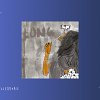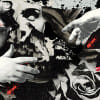Short Story Review: In “Lucky”, innocent lives encounter destructive politics

Have you ever read a story that moves through you like a quick, soft breeze and at the same time shifts something inside your heart? "Lucky" (IBUA Publishing, 2021) by Doreen Baingana is one such literary gem. Shortlisted for the Caine Prize in 2021, the story is a mix of first-person plural and singular narration (like "Hitting Budapest" by NoViolet Bulawayo). Despite this hybrid feature, in my mind, the story lingers in the "we" voice due to its prominence and abundance overshadowing the "I". As a perk of the former, the reader rides the wave of an effortlessly energetic, insightful, and witty language. Reading "Lucky" feels as though the musical voice sprang forth spontaneously from the story, without much altering or tuning. It manages to hypnotise from the start to finish without a dent of dullness.
Besides Bulawayo's 2011 Caine Prize hit, the first-person plural bits in "Lucky" also reminded me of "Fanta Blackcurrant" by Makena Onjerika and "Come, Japanese" by Julie Otsuka.
We follow an unnamed narrator, his classmates, and their Math teacher as they wait out an ongoing civil war (between the government forces and the infamous Lakwena rebels of Uganda) in their boarding school campus. They pass their time scavenging for maize and mangoes, cooking, cleaning, playing make-believe war games, and reluctantly solving math problems at the teacher's persistence.
We are pushed into the conflict as the characters run into their dorm and cower under their bunk beds upon hearing a deafening clamour. An armed group of Lakwena rebels are passing through their campus. Once they are gone, one of the characters emerges out of hiding and their lives change forever. The climax is perfectly restrained, no overdone sentimentality at play. It is a masterclass in striking grief into a reader's heart without painting drawn-out scenes.
Baingana infuses the story with political criticism (which avoids the risk of sounding preachy and didactic) and humorous encounters. Consider this scene where our narrator is told by the teacher to stay down while the rebels are passing by: "Don't move," Koma hisses….Like I was about to do what, tour the school?" And, "Don't ask me what the war is all about: the new government army of former rebels was now fighting rebels who had been the old government army. So what's the difference?".
The story's excellence lies not only in the grand themes it touches—grief, war, nostalgia, and displacement. It also lies in the child-like, unapologetic simplicity of the language.
For me, the key takeaway from "Lucky" would be the perspective one can gain into living in the shadow of war, which creates around its victims a prison of undying misery. "Ask me what prison is like and I'll tell you: whole hours, days, stretching out like an endless line of ants, filled with nothing but the same routine chores, and then sitting around staring emptily at the same few pimply faces, listening to our stomachs growl, our thoughts roaming the carefree past or a fantastic future, circling, circling to avoid the wide, flat, dry now", the narrator says. The quote opens the reader's consciousness to the fact of suffocating monotony and pining for stability. Be it regarding the civilians in Tigray or Ukraine or the Rohingyas in our own backyard, Baingana's story remains relevant despite being set in the 20th century.
Add the usage of children as some of the main characters to that takeaway, and we see the clever irony Baingana builds before us: innocence bearing the brunt of evil.
"Lucky" was published on The Ako Caine Prize website and can be read here: http://www.caineprize.com/new-page.
Shah Tazrian Ashrafi is a contributor.

 For all latest news, follow The Daily Star's Google News channel.
For all latest news, follow The Daily Star's Google News channel. 











Comments